We Communicate For Happy Children
 ANECD Update #23
ANECD Update #23 
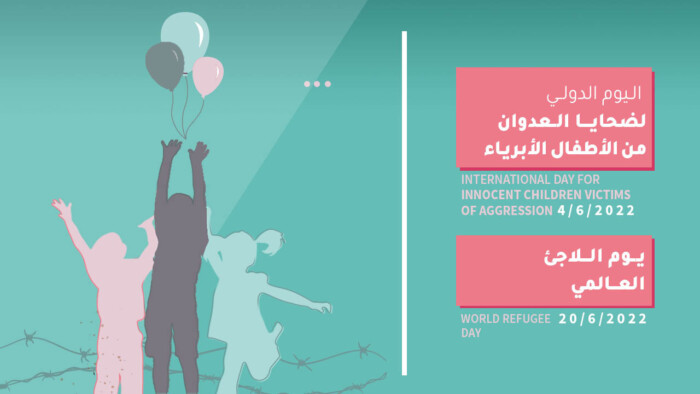
First admitted during the 1982 Lebanon War, the United Nations assigns a date to the pain of children who have suffered as victims of physical, mental, and emotional abuse. The purpose of this day is to recognize the continuous suffering worldwide.
UN resolution E-7/8:
the International Day of Innocent Children Victims of Aggression
“On 19 August 1982, at its emergency special session on the question of Palestine, the General Assembly, “appalled at the great number of innocent Palestinian and Lebanese children victims of Israel’s acts of aggression”, decided to commemorate 4 June of each year as the International Day of Innocent Children Victims of Aggression.”
Early Childhood in Crisis, from global to the Arab region
Once Again: Displaced Children Suffer the Most in a World of Double-Standards
A new conflict, this time in Ukraine, which is not the first and will not be the last. Since February 2022, the European countries neighboring Ukraine have received more than 6 million refugees, most of whom are women and children, who have fled the war and its repercussions on the stricken families, especially children.
Over the past months, the neighboring European countries have shown their willingness and readiness to provide means of protection, care, and basic services for these refugee children.
However, part of this international response to the Ukrainian refugee crisis has been at the expense of the continuing tragedies of the children of Palestine, Syria, Yemen, Lebanon, Ethiopia, Colombia, Venezuela, Haiti, Madagascar, Sudan, and many other places, millions of whom, over the past ten years, have struggled to find safety for themselves and their children. From the effects of the ongoing war in their country.
A new generation of displaced and refugee children is exposed to the dangers of war, affecting their physical and mental health, psychological and social well-being, and an opportunity to live in a just and safe environment. The conflict in Ukraine is just one of the many humanitarian crises in our world, which, although geographically far apart, still have one victim: All children.
In a world where double standards prevail in dealing with children and people affected by the effects of war, ANECD stresses that the Convention on the Rights of the Child should be the primary reference for governments, donors, and international actors, to protect and support all young children and their families without discrimination based on race, religion, color or nationality, in all countries of the world alike.
Read the message of the UN leaders on the situation in Syria and the region.

The state of world refugees
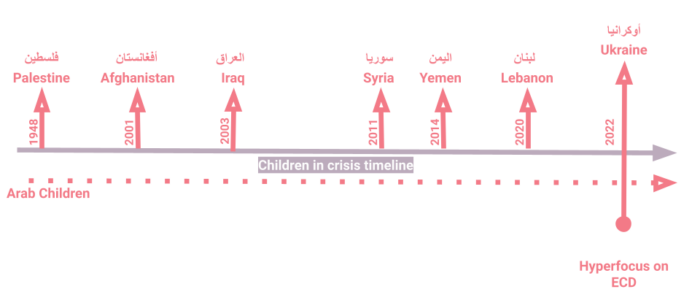
Arab countries facing chronic multi-dimensional crises
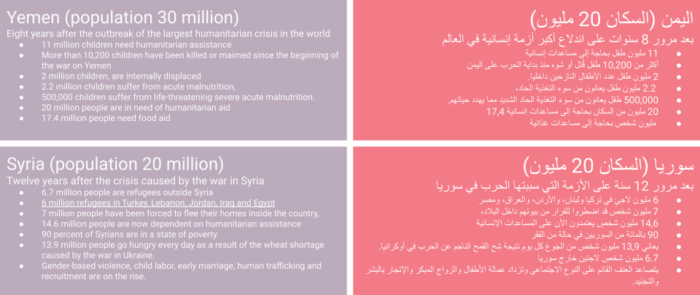
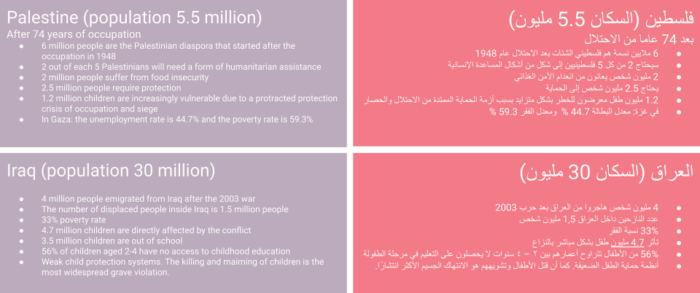

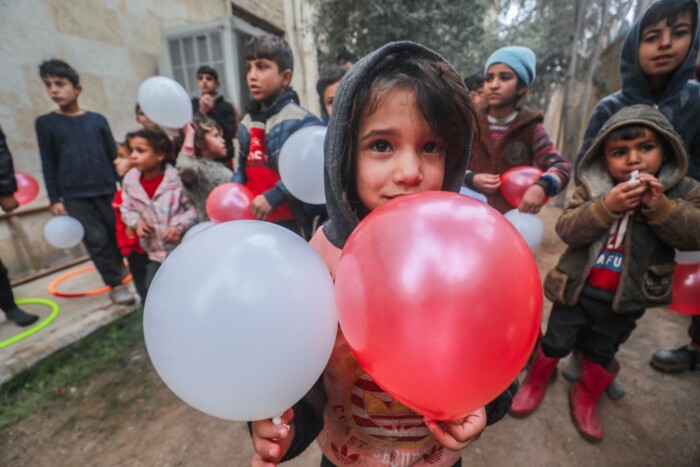
Your e-mail may have been automatically added to other ECD lists.
We will be happy if you stay with us. However, you may unsubscribe at your convenience.
